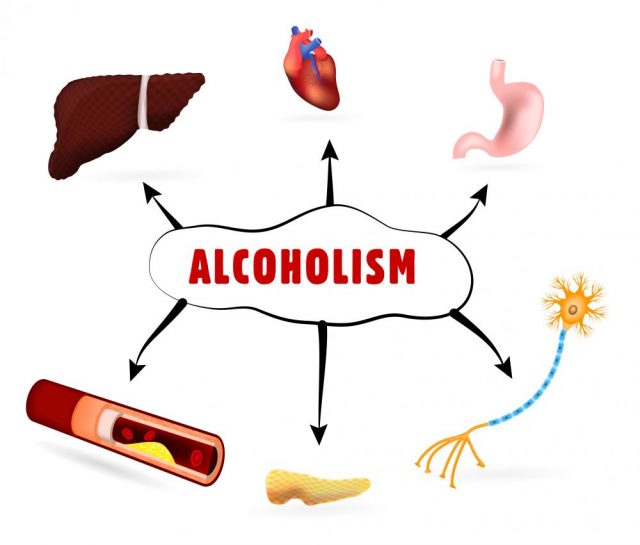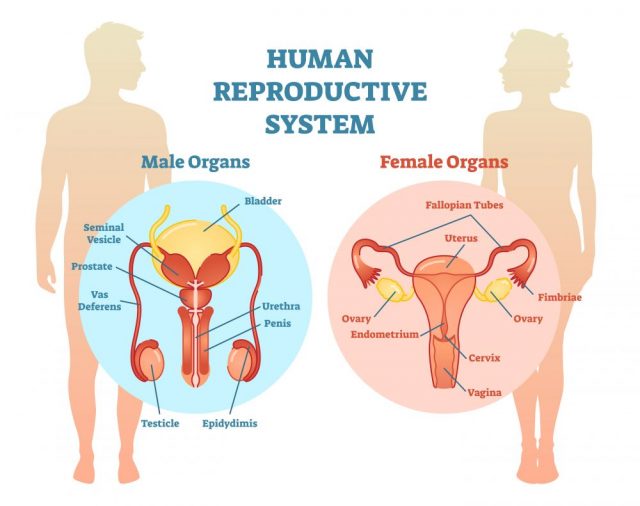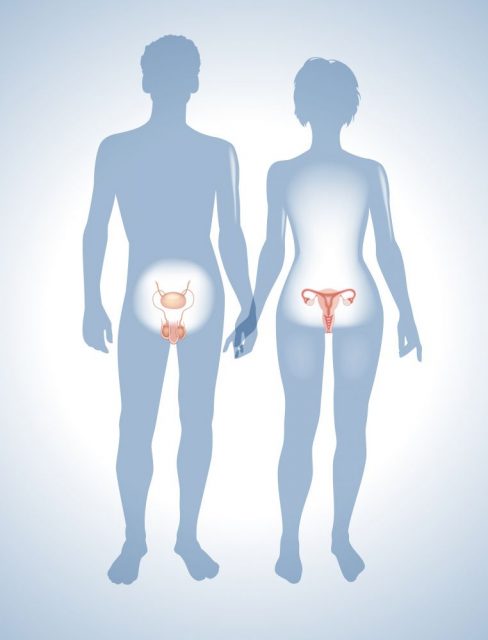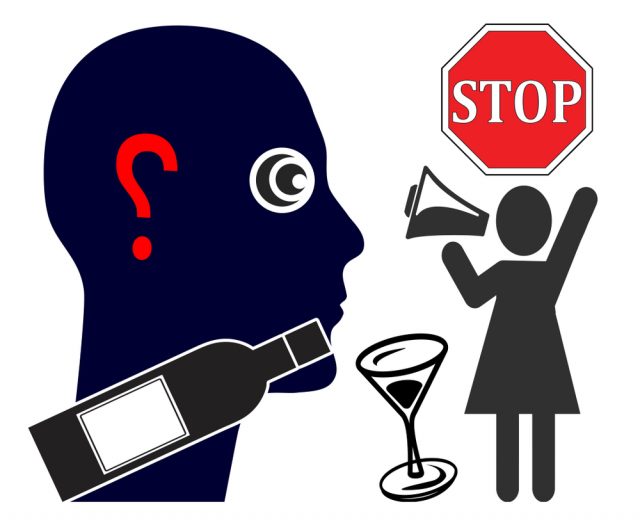How Does Alcohol Affect The Reproductive System?
 Alcohol is one of the most commonly abused substance that is harmful for the health in many ways including the reproductive system. In fact, there is strong evidence that suggest alcohol to reduce fertility in both – men and women.
Alcohol is one of the most commonly abused substance that is harmful for the health in many ways including the reproductive system. In fact, there is strong evidence that suggest alcohol to reduce fertility in both – men and women.
In this guide, let’s take a look at how alcohol affects the human reproductive system and how much is too much when you are trying for a baby.
Alcohol and woman
Chronic drinking can cause various problems for woman. Initially, adolescent girls that consume a lot of alcohol experience delay in their puberty. Studies also show that young girls are unable to handle the ‘effects’ of alcohol on their body that results in an irregular menstrual cycle.
 Alcohol can also contribute to an unhealthy weight gain in females. This is because alcohol contains empty calories. Those who have a habit of chronic drinking can also make poor eating choices that result in weight gain and lack of nutrition in the body. Ultimately, this causes a hormonal imbalance that affects their puberty.
Alcohol can also contribute to an unhealthy weight gain in females. This is because alcohol contains empty calories. Those who have a habit of chronic drinking can also make poor eating choices that result in weight gain and lack of nutrition in the body. Ultimately, this causes a hormonal imbalance that affects their puberty.
Alcohol and fertility in women
When it comes to pregnancy or woman trying to conceive – a regular menstrualcycle and a successful ovulation is required to achieve pregnancy. However, both are disrupted by even mild use of alcohol – causing a hindrance to their fertility. In fact, aDanish study found that compared to the women who do not drink at all, women who drink in moderate or intense level take longer to get pregnant and may even seek fertility treatments for positive outcomes.
One more study from Denmark noticed that women, above the age of Thirty who had one to six drinks in a week may be linked with growing incidence of infertility after comparing to women of the similar age group who use less than 1 drink in a week.
 Another study also found that alcohol even affected the conception rate of women on fertility treatments. According to the reports, woman who did not drink at all before the treatments were twice more likely to conceive than those who used to drink before they were started.
Another study also found that alcohol even affected the conception rate of women on fertility treatments. According to the reports, woman who did not drink at all before the treatments were twice more likely to conceive than those who used to drink before they were started.
Though the findings are inconsistent and requires more research, it is advised that women should drink in moderation, especially if they are trying to conceive through natural or medical-aided methods. Additionally, there is no ‘safe’ dose advised for the women and therefore, women should abstain from overall consumption during these times.
Alcohol and the unborn child
Since it is difficult to determine when the pregnancy actually takes place, medical practitioners ask woman to avoid drinking altogether, when they are trying to conceive. This is important because alcohol can risk the baby of several health issues including low birth weight, preterm labor, and miscarriage.
A woman may also risk the impairment of the fetal heart, the central nervous system, physical features, and damage to organs of the baby when she consumes alcohol during the first trimester of pregnancy. Continued intake can result in brain damage to the fetus at any stage of the pregnancy.
Alcohol and menopause
Drinking women who have attained menopause are found to have increase occurrence of osteoporosis, the condition where bone loses its density and becomes more fragile as well as prone to fractures. The hormonal imbalance caused by the use of alcohol can also induce early menopause in some women.
Alcohol and men
Alcohol slows down the neurotransmitters that allow the brain to communicate with the rest of the body. This causes impairment in the drinker’s vision, speech, alertness, and judgement for short period. However, those who are binge drinkers experience permanent damage to their nervous system, which besides several other problems can cause sexual impotence in men.
 Heavy alcohol use can also affect all the three areas of the male reproductive system and its hormones. These include the testes, the hypothalamus in the brain, and the anterior pituitary gland, which is connected to the brain. When these are impacted, sperm production and quality is compromised, which is a necessary element for fertility.
Heavy alcohol use can also affect all the three areas of the male reproductive system and its hormones. These include the testes, the hypothalamus in the brain, and the anterior pituitary gland, which is connected to the brain. When these are impacted, sperm production and quality is compromised, which is a necessary element for fertility.
Testicular damage is also common in men who are heavy drinkers. They are also unable to perform sexual activity due to the influence of drinks in their brain.
Since alcohol alters the quality of sperms, it is also observed to harm the unborn baby and cause birth defects – even if the mother is non-alcoholic. Even in the case when no physical defect is apparent in the baby, a child born from an alcoholic father may have behavior abnormality and be highly aggressive.
This being said, it is recommended that men who are heavy drinkers should limit their intake when they are planning their pregnancy through natural or medicated means.
Drinking in teenage years
 Apart from the effects of alcohol on fertility and the reproductive system, the teenagers who drink aggressively are at higher risk of indulging in unprotected sex. This exposes them to several health hazards including sexually transmitted disease and HIV/Aids. Besides the health complications these diseases cause, the effects can also cause long-term damage such as infertility.
Apart from the effects of alcohol on fertility and the reproductive system, the teenagers who drink aggressively are at higher risk of indulging in unprotected sex. This exposes them to several health hazards including sexually transmitted disease and HIV/Aids. Besides the health complications these diseases cause, the effects can also cause long-term damage such as infertility.
Final words
Alcoholis enjoyed and has been a part of celebratory moments for centuries. However, until recently we have begun to fully understand how the ‘drink’ affects our bodies and leaves life-long consequences.
 Yes, a drink or two can make you happy and relaxed – especially if you are in a social setting. But excessive drinking can cause negative effects on the health and organs of the body. It can also increase the risk of heart failures, strokes, hypertension, and even some forms of cancer.
Yes, a drink or two can make you happy and relaxed – especially if you are in a social setting. But excessive drinking can cause negative effects on the health and organs of the body. It can also increase the risk of heart failures, strokes, hypertension, and even some forms of cancer.
Above all,a women’s ability to conceive and a man’s to impregnate is also affected by drinking excessively. Here, you can also see that substance abuse can harm the unborn baby and affect its capability to live a healthy life.
So before you put your hand on another bottle again, make sure you are aware of the risks caused by binge drinking – not only to your reproductive cycle but to overall health as well.
